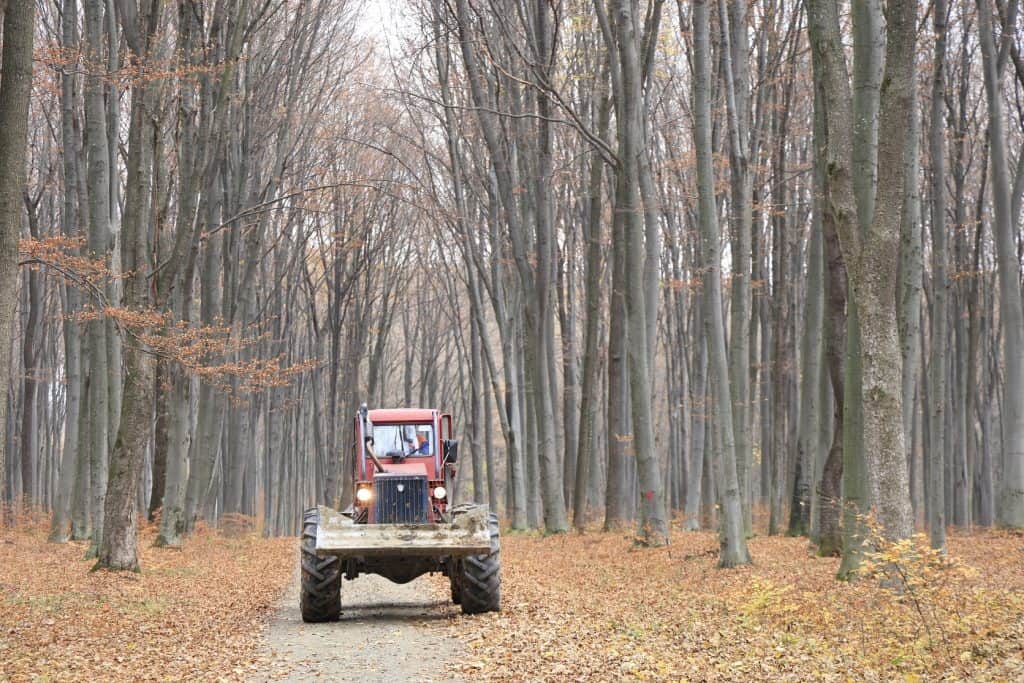The first draft of the project the new Forestry Code should be based on does not take into account the strategic directions that had recently been adopted by the National Forestry Strategy (SNP 30). The so necessary administrative reforms are missing, but a series of important slippages from the principles of sustainable forest management can be found.
"We are stuck with the same inefficient illegal logging system, where we will continue to see rangers attacked by wood thieves, local communities deprived of access to the resources they depend on and a suffocating bureaucracy that reveals the bankruptcy of the entire forestry sector. Moreover, we risk being left with fewer forests, witnessing a logging liberalization, starting a new wave of "appropriation" of the state's forests and abandoning the responsible practices that ensure good protection of the environment and of biodiversity conservation.”
Radu Vlad, manager of the forestry programs at WWF Romania
WWF has been actively involved in the participatory process, coordinated by the academic environment, which was called to put the best technical solutions on the authorities’ table. However, we are intrigued that, although a good part of the project team was involved even in the elaboration of SNP 30, the draft of the project does not even come with solutions to the problems already pointed out and does not take into account the recommendations included in the interim reports previously developed within the same project.
Unfortunately, the independent process seems more like an illusion, the technical proposals are as if censored by the authorities' own vision. The latter should leave their comfort zone and complete the reforms already undertaken at the declarative level.
The main issues that concern us
1. Maintains and expands the „worrying” 10 cubic meters threshold
It basically maintains the same system that tolerates and protects „theft with legal documents.” It maintains the minimum aberrant threshold of 10 cubic meters to sanction as a forestry crime the transport of timber materials without an accompanying permit, although statistical data prove that the most frequent operation mode is currently the fraud of specific documents regarding the volumes of transported timber.
So, statistically, an operator risks only a modest fine (200-1,000 euros) for only 1 out of 100 shipments if he „mis-declares” the volume by less than 10 cubic meters, in addition, per shipment. Who would buy a bus ticket if the fine was less than the price of the ticket and the controls were extremely rare and haphazard or, possibly, even discretionary?
Moreover, this threshold is also replicated in the case of wood theft, of illegal cutting or of destruction caused to vegetation. Considering that one can transport about 3 cubic meters with a truck, it means that a ranger has to catch a thief four times in a row in a year to be able to incur criminal liability. We risk witnessing an increase in violence against forestry personnel, especially in the context of rising energy prices and a decrease in the purchasing power of the population.
2. Risks destroying the principle of continuity
The current forestry system for timber harvesting is based on the principle of continuity, by which the owner is not allowed to cut more timber than the forest grows in a year. According to the provisions of the draft project, harvesting in advance will be allowed. Without adding clear enforcement limits, this principle which is essential in defining sustainable forest management is undermined. Advance harvesting of the annual possibility can be strictly exempted for certain areas where there are clear problems regarding natural regeneration because of the high periodicity of the fruiting of trees (e.g. oaks) and only with the prior verification and approval of the authorities.
3. Starts a new wave of „appropriation” from the state-owned forests
The proposed legislation gives the green light to retrocession from the state-owned forests, which WWF managed to stop three years ago. We appealed then to the President of Romania not to promulgate the law based on which those whose lands were taken by the communist regime would have to be compensated with the forests that have always been the property of the state. This would have continued the chaotic retrocession system, which was one of the main causes for illegal logging.
The People's Lawyer drew attention last year to the fact that „the creation of this possibility to recreate the forestry lands from those that were owned by the state before 1948, surprises all the more since forests are considered a national asset (…) we emphasize the role of the state to preserve the national forestry fund by adopting appropriate, coherent and sustained legal measures to prevent occasional attempts to spoil it„.
4. Forest-dependent communities lose again
The concept of „forest-dependent communities” is used only to limit the expansion of new protected areas that could affect the legitimate interests of these communities. However, it says nothing about facilitating their access to the resources provided by the forest, which they consider a fundamental right and on which they depend. Their access is restricted by the administrative procedures to capitalize on their wood or by conceding the right to collect forest by-products. Basically, these communities have to win an economic competition with the big wood processors which often make use of non-competitive practices.
5. We risk being left with fewer forests
The “Nobody’s Forests” are now officially nobody’s. The new legislation completely ignores any concern for taking care of the approximately 500,000 hectares of forests outside the national forestry fund, which we can find on pastures or wooded meadows. Treating them as forests will no longer be mandatory, it will be legally up to their owners to cut them down completely, and the state does not take any measure protect them.
The document under debate is, for the moment, a first draft from which to start applied debates. We hope that, by the end, it will align with the objectives assumed by the National Strategy for Forests. However, if these controversies are not solved in the final form of the Forestry Code draft, WWF requests that its approval not be achieved through an Emergency Ordinance, but to go through the parliamentary procedure, where we hope they can be fixed democratically.

